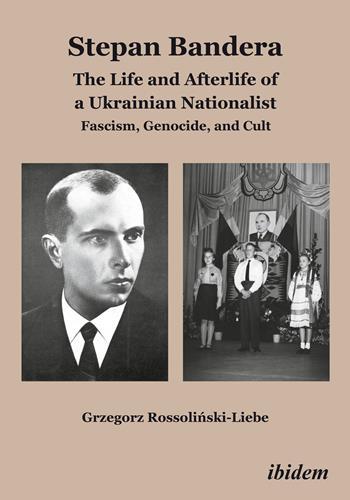 |
| Poles being taken away during the Ukrainian Insurgent Army's 1943–45 campaign of mass killings. |
 |
| Stepan Bandera |
Bandera was evidently a nationalist of some sort and highly controversial, but why? The Russians said he was a fascist and an antisemite, but Western media were quick to disregard that as Moscow propaganda. So they hedged.
The Washington Post wrote that Bandera had entered into a “tactical relationship with Nazi Germany” and that his followers “were accused of committing atrocities against Poles and Jews,” while the New York Times wrote that he had been “vilified by Moscow as a pro-Nazi traitor,” a charge seen as unfair “in the eyes of many historians and certainly to western Ukrainians.” Foreign Policy dismissed Bandera as “Moscow’s favorite bogeyman . . . a metonym for all bad Ukrainian things.”
Whoever Bandera was, all were in agreement that he couldn’t have been as nasty as Putin said he was. But thanks to Grzegorz Rossoliński-Liebe’s Stepan Bandera: The Life and Afterlife of a Ukrainian Nationalist, it now seems clear: those terrible Russians were right. (more...)
H/T to Dave Emory

No comments:
Post a Comment